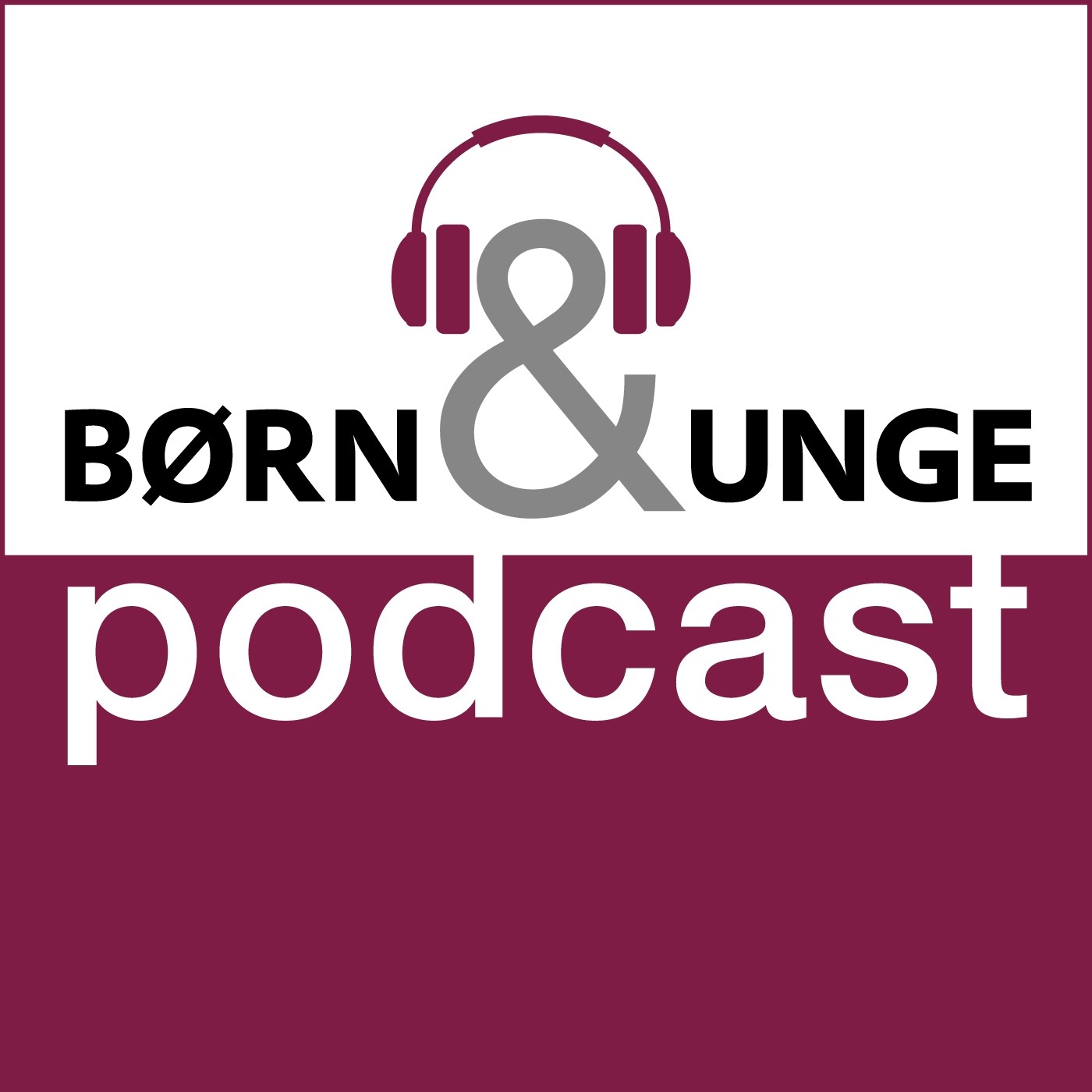 |
The Leading Voices in FoodAuthor: Duke World Food Policy Center
The Leading Voices in Food podcast series features real people, scientists, farmers, policy experts and world leaders all working to improve our food system and food policy. You'll learn about issues across the food system spectrum such as food insecurity, obesity, agriculture, access and equity, food safety, food defense, and food policy. Produced by the Duke World Food Policy Center at wfpc.sanford.duke.edu. Language: en Genres: Health & Fitness, Science, Social Sciences Contact email: Get it Feed URL: Get it iTunes ID: Get it Trailer: |
Listen Now...
Pathway to Market is Complicated for Cell-Cultivated Protein
Episode 291
Tuesday, 24 February, 2026
As global demand for meat grows, this episode of Duke University's Leading Voices in Food podcast examines cell-cultivated protein—real meat grown from animal cells—and the evolving U.S. policy landscape shaping its future. Host Norbert Wilson (Duke World Food Policy Center) speaks with postdoctoral researchers Kate Consavage Stanley (Duke/Bezos Center for Sustainable Proteins) and Katariina Koivusaari (NC State/Bezos Center) about their article in Trends in Food Science and Technology on U.S. regulatory and legislative activity. The conversation explains the joint FDA–USDA regulatory approach for cell-cultivated meat (FDA oversight through cell cultivation; USDA oversight from harvest through processing, packaging, and labeling) and FDA oversight for cell-cultivated seafood (except catfish). They discuss timelines companies report for approval (often two to three years), the lack of federal public guidance on naming and labeling so far, and how USDA label approvals are currently handled case by case (e.g., "cell-cultivated chicken" and "cell-cultivated pork"). The episode also covers state-level labeling laws and the likelihood of federal preemption if state requirements conflict with federal statutes, as well as a growing wave of state restrictions and bans—Florida and Alabama in 2024, followed by Indiana, Mississippi, Montana, Nebraska, and Texas in 2025—plus funding restrictions in South Dakota and Iowa. The guests explore implications for consumers, interstate commerce, innovation, investment, and U.S. leadership, noting ongoing lawsuits in Florida and Texas and continued legislative activity such as a proposed ban in Georgia. Interview Transcript Kate, let's begin with you. In the paper, you write about the regulatory frameworks that have been developed for cell-cultivated meat and seafood products in the US. To start, let's talk about what's unique about cell-cultivated products from a regulatory standpoint and how the US Department of Agriculture and US Food and Drug Administration have decided to handle cell-cultivated protein products. Kate - Yes, so as you mentioned in the introduction, Norbert, cell-cultivation is a new technology for use of the food supply. So, the US government had to adapt its existing legal frameworks for food safety regulation. As your listeners may already know seafood is regulated by the FDA, so it was within their scope to also regulate cell-cultivated seafood. The FDA therefore regulates all cell-cultivated seafood products with the exception of catfish. When it came to determining the regulatory approach for cell-cultivated products from livestock, poultry, and catfish, it was a bit more nuanced as the processes and components evolved fell under both USDA and FDA purview. In 2019, the FDA and USDA therefore agreed on a joint regulatory approach where the FDA regulates the early stages of the cell cultivation process, including when those cells are taken from the animal, grown in the bioreactor, and matured into specific cell types such as muscle or fat cells. At the point where those cells are ready to be harvested from the bioreactor to use in a food product, oversight transfers to USDA who oversees that harvesting process as well as food processing, packaging, and labeling. I know this joint regulatory approach may sound complicated, but it's important to note that USDA and FDA already coordinate oversight over other foods in the food supply. I'll give you an example that we all love pizza. A frozen cheese pizza is regulated by the FDA, whereas a frozen pizza with meat toppings like pepperoni is regulated by the USDA. It is therefore not unprecedented that FDA and USDA would agree to jointly regulate cell-cultivated products. And while the process is new, the products go through the same safety checks as other foods in the food supply. In the past few years, we've seen four cell-cultivated meat products go through the joint USDA-FDA regulatory process, meaning they can be sold in the US food supply. And one cell-cultivated seafood product has gone through the FDA regulatory process. Kate, thank you for sharing this. And I've used a pizza example in my class, and it is super complex this regulatory maze that we're talking about. It seems like there has been a lot of collaboration between these two agencies, and so that's important to hear. But it is also the case that it seems challenging for cell-cultivated protein companies to get through this process. Is this a fair assessment and would you elaborate? Kate - Yes, absolutely. We've heard from cell-cultivated companies that it can take two to three years to get through this process. And there certainly is a lot of back and forth between the companies and FDA and USDA. Great, thank you. Katariina, now let's turn to you. How do these regulations extend to labeling and what do we know about the federal government's approach to labeling the sale of cultivated products thus far? Katariina – So, labeling regulations are the most consumer facing part of regulations, really. And they are used to ensure that the product label has information that's truthful, that's not misleading. And that the package has sufficient information and consistent information also across products so that the consumer can make an educated decision on what product they want to purchase. And you'd think that how you label the product or just how you call the product on the label would be simple. But there are certain regulations in place that define how food items can or cannot be called. Now, when it comes to cell-cultivated products, as you and Kate mentioned, they are novel in the food supply. So, there is not a long-established term or nomenclature on how we should call these products. The federal regulators, FDA and USDA, to date have not released any public guidance either on how these products should be called on the label. The USDA did release an advanced notice of proposed rulemaking back in 2021, requesting comments from stakeholders on how these products should be labeled. And the FDA has also requested comments when it comes to labeling cell-cultivated fish and seafood. But to date, no guidance has been published yet. Kate gave an overview of the regulatory process between FDA and UFDA when it comes to labeling this product products. The USDA oversees labeling cell-cultivated meat, and the FDA oversees labeling cell-cultivated fish and seafood. The USDA has a pre-market approval process for labels, similarly to conventional meat industry. So, whenever a company wants to bring to market a new product, they first submit their label to the USDA. And the USDA reviews it and make sure that they agree with the language used in the label. The FDA does not have a similar pre-market approval process for labeling fish or seafood or cell-cultivated fish or seafood. So, currently cell-cultivated meat labels are approved on a case-by-case basis. And we can see from the products that have gone through the regulatory review so far that the USDA seem to approve the use of 'cell-cultivated' as a qualifying term, together with a meaty term such as chicken or pork. So, the products that we've seen approved to date or brought to market to date are called cell-cultivated chicken or cell-cultivated pork. This is really helpful to know what's happened at the federal level. We also know that there are several actions happening at the state level, so several states have proposed their own laws outlining how and what to label these products. Katariina, can you talk us through what this study regarding state labeling? Katariina - To date, about half of the US states have enacted or proposed their own labeling legislation on cell-cultivated products. Missouri became the first state in 2018, so well before any of these products was available on the market. And they specifically prohibited the use of word meat unless the food was from harvested production livestock or poultry. Restricting, therefore, the use of meat not only on cell-cultivated, but also on other alternative protein products such as plant-based meat analogs or fermentation derived proteins. And this is true for many state level labeling laws. That they are applicable not only to cell-cultivated meat, but also other alternative proteins aiming to mimic meat. In addition to Missouri, there are six other states that prohibit the use of meat or meat related terms, such as chicken or pork. Now, the other group of states that have restrictions on cell-cultivated meat labeling do not concentrate on prohibiting the use of word meat, but they require the use of qualifying terms or other additional language that clearly states that the product does not come from livestock or poultry. And this group of states, there are 18 states, have quite a bit of variation in what kind of qualifying terms they require to be used. And I thought I'd give a couple of examples here. For example, Indiana requires the package to include the phrase this is an imitation meat product. Iowa requires the product to be labeled with qualifying terms such as cell-cultivated, cell-cultured, fake, grown in a lab, imitation, lab grown, lab created, meat free, or meatless. What's interesting though is that the federal statutes that regulate the US food supply have actual language that prevents states from establishing laws or regulations that conflict with or are additional to the federal labeling regulations. So, this means that the state level labeling laws are actually likely to be preempted if they conflict with the federal regulations. So, we've only talked about labeling so far. Kate, I want to go back to you. More recently, we've seen a number of states propose greater restrictions on these products. Can you describe these attempts to restrict cell-cultivated meat and their immediate implications? And how have cell-cultivated companies and other stakeholders responded? Kate - In the past few years we've seen quite a few attempts by states to ban or restrict cell-cultivated meats. And these attempts fall into two buckets: bans that aim to restrict the manufacturer sale or distribution of cell-cultivated products and bans that aim to limit the use of state funding to support these products. In 2024, Florida was the first state to pass a ban on the manufacture, sale, and distribution of cell-cultivated meats. Alabama followed shortly thereafter. In 2025, five more states passed similar bans on cell-cultivated products, including Indiana, Mississippi, Montana, Nebraska, and Texas. And many other states proposed bans that ultimately didn't pass. The language on what is banned differs some between states. For instance, Texas only bans the sale of cell-cultivated products. Whereas Florida and others also ban cell-cultivated manufacturing and distribution. But the core message in all these bans is similar. Cell-cultivated meats are not welcome in those states. The time span for the bans differs too. So, Indiana and Texas have two-year bans while Florida and other states passed indefinite bans. And we've seen two states, South Dakota and Iowa pass legislation to restrict the use of state funding to support cell-cultivated products. What's frustrating about these bands and confusing for those in the alternative protein sector is that cell-cultivated technology is largely still in the early stages. Yes, as I mentioned earlier, five products have passed through the regulatory process. But these products have mainly been made available in small tasting events. And only one has actually made it to retail. Most Americans have never had a chance to actually try these products. So, it begs the question, why is there such resistance? State bans on these products mean that Americans will not have the chance to decide for themselves if they like these products, or if and how they want to incorporate them into what they eat. Another big concern is that these bans create a fragmented policy landscape that's challenging for cell-cultivated startups, especially, to navigate. And it raises a lot of concerns about cross state sales. Concerns like these are the basis for two lawsuits against cell-cultivated bans in Florida and Texas. Those lawsuits are still playing out in court, so we don't yet know how those may Kate, this is really fascinating. And as both you and Katariina described, there's a patchwork of policies and a complex landscape for these companies to navigate. It has the potential of keeping consumers from even trying the products, as you've already suggested, when they're made available. And what I'm hearing from both of you is that this is an ongoing project. So even though there's a paper that's published now, it seems like there will be opportunities to keep going back as new laws and new regulations and new lawsuits are decided. So, this is a policy space that we need to keep an eye on. That's something I want to pick up on this last question. In closing, what does this legislation mean for consumers and the future of cell-cultivated products in the US and even globally? Katariina, let's begin with you. Katariina - Yes. In addition to impeding interstate and international commerce of cell-cultivated products, these bans could negatively impact the US investment climate on these products and technologies. For example, China has included developing cell-cultivated meat in their five-year plan. Within Europe, there's some variation. Some countries are being rather supportive of these technologies and products, whereas others have tried to ban them similarly to some US states. But I think it's important to note that even with some states in the US banning these products, the US will still likely remain a significant market area for cell-cultivated products. And it still takes significant investment and infrastructure to produce the products on a large scale enough to even reach the whole country. Another really important thing to mention here is that the global demand for meat is growing. If we look at global population forecasts, global meat or protein consumption forecasts, we need these alternative proteins. Not only cell-cultivated meat, but also for example, plant-based meat alternatives to help meet the increasing demand for protein and complement conventional meat supply. Kate, what about you? Kate – I agree with everything that Katariina said. To add on to her points, I note that the US has been a leader in the cell-cultivated research development and innovation spaces to date. We are one of only a few countries that have both developed a framework for regulating these products and had products successfully pass through that process. The bans tell a different story, and they may restrict US innovation in the cell-cultivated space because companies will be limited to only the states where they can produce and sell these products. What this means for US leadership in the space remains to be seen. However, one could ask will cell-cultivated companies choose to set up shop in the US versus another country that isn't facing such legal challenges? We don't yet know the answer to that. You also mentioned consumers. We don't yet know about how these bans and the media surrounding them may influence consumer perceptions of cell-cultivated foods. Products, as you said, they've never even really had the chance to try. But these bans will certainly restrict consumer access to these products in certain states, and the varying state approaches to labeling that Katariina described are likely to confuse consumers. Going back to something you mentioned earlier, Norbert, we're excited to have this paper out in the world. But this work is certainly continuing to evolve. Just recently, a senator in Georgia proposed a new ban on cell-cultivated meat in the state, and other countries have faced similar legislative challenges against these products. So, we'll be watching and learning as these challenges continue to play out. Bios Katariina Koivusaari, Ph.D. is a postdoctoral researcher at the Bezos Center for Sustainable Protein at North Carolina State University. Her work focuses on stakeholder engagement and the regulatory and policy landscape of alternative proteins, including cell-cultivated products, fermentation-derived proteins, and plant-based proteins. She received her Ph.D. in Public Health Nutrition and M.Sc. in Food Sciences from the University of Helsinki. Prior to her current role, she worked in the biotechnology industry as a Senior Regulatory Scientist, where she focused on scientific strategy and regulatory affairs related to cell-cultured human milk ingredients. Katherine (Kate) Consavage Stanley, Ph.D., serves as a postdoctoral associate within the World Food Policy Center at the Sanford School. In this role, Kate supports Duke's research for the Bezos Center for Sustainable Protein housed at NC State. Her research seeks to detail the complexities of the consumer, market, and policy landscapes for alternative protein products. Kate holds a Ph.D. from Virginia Polytechnic Institute and State University where her research focused on how diverse U.S. food and health systems actors can support sustainable diet transitions through promoting plant-rich dietary patterns and reducing red and processed meat intake. She has also published scholarly work on digital food and nutrition literacy, sugary beverage media campaigns, and incorporating sustainability considerations into dietary guidelines, among others. Prior to starting her doctoral studies, Kate worked for the U.S. Agency for International Development (USAID) where she developed technical, communications, and advocacy-focused materials on key nutrition and maternal and child health issues. Kate holds a Master of Science in global health from Georgetown University and a Bachelor of Science in biology from Emmanuel College.











